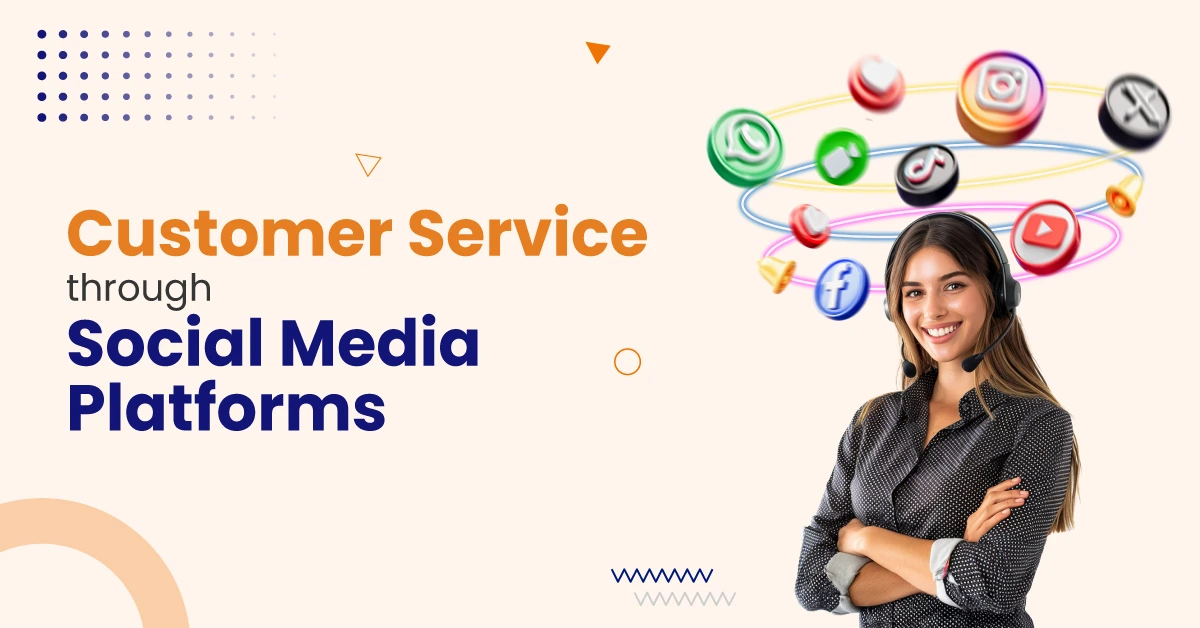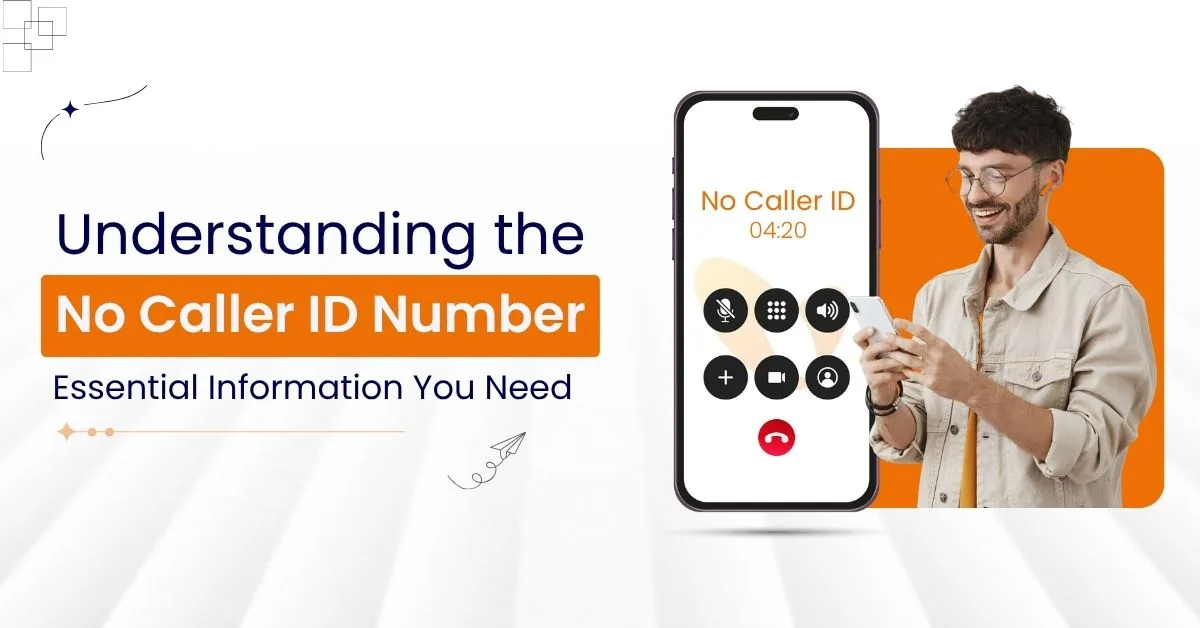The Real Impact of Social Media on Business Communication Today

9 min read
Table of Contents
Introduction to the Impact of Social Media on Business Communication
Social media platforms have reshaped business communication in a very effective manner. Brands can connect to a target audience in minutes, check in with existing customers by the hour, and keep the conversation going across social platforms that feel like a second personality to users. The ripple effect goes beyond marketing into society itself, where communication norms shift and cultural change gathers speed.
There are over 4.5 billion social media users, forming a large portion of the world’s population. Businesses now lean on digital marketing to promote services, launch products, and stay visible. Using the social media tools correctly simplifies the communication process and reaches people at every corner of the world. Most users spend well over two hours a day on at least one online platform. A large number are using it on mobile devices. This makes social media a genuine place for business communication to flourish.
The internet made all of this possible: turning static websites into spaces where companies can create content, build brand awareness, and maintain relationships with customers who expect quick answers and helpful updates.
Social media communication strategies are now a basic requirement. Many businesses use social media to
- outpace competitors
- refine messaging and engagement
- meet marketing goals
There are risks to plan for as well. Fake news, cyberbullying, and privacy issues can undercut trust if a company fails to monitor content and respond with care.
Social media’s role also stretches into crisis or reputation management. When something goes wrong, a clear, timely post can steady the conversation and show accountability. These platforms double as research hubs too, letting teams gather real-time feedback and post data that guides better decisions. Visuals matter here. Images and videos boost engagement and recall, while students and professionals use the same feeds to learn, network, and grow. Balance is key, since excessive use can take a toll on personal and social life.
Finally, social media has globalized business communication. A business can respond to a comment in seconds, adjust tone for different cultures, and join trends from across the world. Built-in analytics turn raw interactions into insights about “behaviour, interests, and sentiment”. Formats like live streams, stories, and polls are evolving and giving brands fresh paths to interact and engage.
Benefits of Digital Marketing in Business Communication
Digital marketing offers practical benefits to modern businesses across sectors. They are focused mainly on three pillars-
- targeted advertising reaches the right people,
- brand awareness grows faster, and
- engagement turns quiet followers into active participants who comment, share, and convert.
Social media platforms provide straightforward tools to find a target audience and promote services without a heavy lift. Businesses map messages to the right channel, then post, reply, and improve based on what customers say.
Facebook, Twitter, and other online platforms help in-
- creating content
- interacting with customers
- building brand awareness in the public view
- builds and reinforces consumer trust
Facebook remains a major platform for both consumers and marketers, which is why many businesses keep it central to their plan.
Digital marketing is practically more cost-effective than traditional media. With careful planning, a single campaign can reach large audiences at a fraction of the spend, especially when creative and media work together.
By using social media well, many businesses increase online presence, improve sales, and pull ahead of competitors with less effort than older methods required.
Brands focusing on social media listen and respond to the trends and grow revenue faster and outperform goals. It gives brands options to track click-throughs, conversions, and cost per acquisition ( CPA ), then adjust in real time.
Audience segmentation is based on-
- Demographics
- interests
- behaviors
This makes targeted advertising more efficient, while newer ad formats like shoppable posts and augmented reality open fresh paths to customer engagement and sales.
Looking to amplify your marketing efforts with reliable, scalable communication tools?
Upgrade your business phone system with Vitel Global’s VoIP services and experience seamless integration with your digital marketing strategy. Contact our sales team now!
Effective Social Media Communication Strategies for Businesses
Social platforms are now core to business communication, helping teams reach a target audience with clarity and speed while keeping the conversation human.
Companies can use social media to create content that feels useful, then interact with customers in comments and messages to build brand awareness that lasts beyond a single post.
Social media platforms also provide analytics and advertising options that show what works, what needs work, and how often to post so the platform algorithms keep surfacing your content.
Users engage by posting, sharing, and reacting, which lifts visibility for the business and creates signals that help more people discover the brand.
It is important to stay active with a steady cadence, because consistent posting improves reach and reminds customers that help and information are always available.
Effective social media communication strategies increase online presence and can translate into measurable sales when content and calls to action line up with real needs.
By leveraging social media, companies build strong relationships around shared interests and professional interests, which support reputation and repeat business over time.
Information sharing is the heartbeat of social media communication, so teams should publish clear updates, answer questions, and invite collaboration to create valuable content together.
To further enhance results, add personalization and social listening, run interactive polls or Q&A, and collaborate with credible creators to reach new, relevant audiences.
Ensure your communication strategy is supported by a robust, flexible phone system designed for today’s social media-driven business environment. Explore Vitel Global’s business phone systems and see how they can enhance your social media engagement. Request your free demo now!
Using Social Media for Small Business Growth
Small businesses can benefit greatly from using social media to promote services and products, because customers already spend time in these feeds.
However, small businesses may have limited resources for marketing, which makes focused, right-sized social media plans essential.
Social media platforms offer tools that help small businesses reach- target audience, promote events, and build brand awareness without spending a large budget. By using social media, small businesses can increase online presence and drive sales. Videos such as short tutorials or how-to guides often spark faster engagement.
Social media can be a cost-effective way to reach a large local or niche audience with targeted advertising. It helps small businesses to create engaging content, interact with customers, and maintain relationships with a clear plan, while a simple informational blog supports education and trust.
Affordable ads on social platforms help reach nearby consumers. But bigger brands often miss the fact that direct replies in comments or messages deliver personal service. Social media also makes connecting easier. This helps in resolving issues faster, and positive experiences are easy to share with friends and followers.
Analytics provides insights on what attracts potential customers and which posts lead to clicks or sales. Thus, owners can adjust content and spend with confidence.
Building partnerships with local creators or community groups can extend reach and add credibility in a way that feels genuine to the audience.
Small businesses looking to scale communication without overextending resources can benefit from Vitel Global’s affordable VoIP services and cloud communication solutions. Get in touch with sales to learn more!
Creating Engaging Content to Promote Business Communication
Creating engaging content sits at the center of business communication on social media platforms, where social media users include both existing customers and potential customers. The goal is to inform, help, and invite a response from people who share interests with your brand.
The current market rewards content that listens first, then speaks, so social media communication should encourage a two-way process with questions, prompts, and simple ways to interact.
For example, businesses can invite stories with a unique hashtag ( # ), collect post data from replies, and use those insights to shape the next piece of content.
Adding images, infographics, and videos increases captivation and shareability. Short-form video often drives the highest engagement on major platforms. User-generated content ( or UGC content ) and creator collaborations add social proof that customers trust. This all results in increased engagement and supports sales outcomes.
Content creators should consider that most consumption happens on mobile devices. So, it should be responsive and designed for small screens and quick viewing without losing clarity. Different social media platforms reward different formats. Thus, timing, length, and style should match the platform and the audience’s habits.
Storytelling helps a brand have that human touch and emotion. Behind-the-scenes moments and clear examples make complex ideas easier for users to relate to, understand, and share.
Analytics close the loop by showing which topics, images, and videos get engagement. So, the social teams can refine the process and improve communication over time.
Enhancing Customer Service through Social Media Platforms

Social media platforms have changed customer service from ticket numbers and long waits to fast, open conversations. Many businesses now meet customers where they already spend time, using Facebook and Twitter to answer questions, resolve issues, and gather feedback in real time. It helps maintain relationships with existing customers, and it is visible to potential customers who value speed and clarity. Unlike traditional media, social platforms let teams track interactions and study data so the next response is smarter. A quick reply builds trust, and slow replies do the opposite, since users expect helpful answers within minutes, not days.
Customer care can also be proactive. Social listening tools surface comments and news about a brand, so teams can step in before a complaint grows. Chatbots handle simple questions, and seamless handoffs to human agents keep the tone empathetic. Personalizing replies, addressing customers by name, and following up after a problem shows real care. When support on a social platform connects cleanly with the phone, website, and email, the experience feels consistent and professional for customers and users across the world.
Streamline your customer service with Vitel Global’s integrated VoIP and cloud communication systems designed for real-time responsiveness. Contact us to upgrade your support today!
Managing Crisis Communication via Social Media
In a crisis, time matters. Social media platforms allow a company to communicate quickly with customers, partners, and the wider world, posting accurate information and clear updates as events unfold. A good plan sets roles, approvals, and a steady cadence so messages stay consistent. When a recall or outage happens, a company can apologize, explain next steps, and keep people informed across the process. That steady communication helps protect reputation and shows accountability in a very public space.
Social media is also where misinformation travels, which is why crisis management includes monitoring rumors and fake news. Teams should watch multiple channels, correct false posts, and use trusted messengers when needed. Training social teams, preparing simple templates, and responding with empathy keep the tone right. Companies that move quickly and transparently tend to hold trust, while those that wait risk being defined by others. The stakes have risen with deepfakes and fast viral claims, so readiness is now part of everyday business communication.
Ensure your crisis communication is swift and effective with Vitel Global’s reliable cloud communication solutions. Request a free demo to learn more!
Improving Employee Engagement through Social Media
Employee engagement grows when people can communicate, connect, and share ideas easily. Many businesses use social media-style spaces inside the company to post news, celebrate successes, and give teams a simple place to collaborate.
It increases awareness of ongoing work, helps professionals exchange ideas, and turns everyday updates into a shared story. That kind of communication builds community and supports a positive impact on culture.
Internal social platforms also support learning. Webinars, discussion threads/forums, and quick short videos let employees teach and learn from one another. Inviting contributions, recognizing helpful posts, and keeping managers active in the conversation increases participation together. Over time, transparency and two-way communication improve trust, which is the foundation of engagement.
Measuring the Success of Social Media Campaigns
To know if social media communication works, one should-
- Track engagement rates,
- website traffic, and
- conversion metrics to understand how posts, images, and videos land with a target audience.
Analyzing post data and replies shows which topics spark interest, which calls to action ( CTA ) lead to sales, and which platforms move people from a social platform to your website. Those insights guide the next round of content and advertising, so the process keeps improving.
Keep an eye on competitors and industry benchmarks, and combine platform analytics with your commerce or CRM data for a full view of the benefits. Set clear goals and KPIs. Test variations- try different headlines, images, and formats, and compare results with A/B testing.
Metrics like conversion rate and cost per acquisition show clearly whether the effort is turning awareness into revenue or not. Regular reporting helps teams adapt quickly as interests and trends change.
Ensure your business communication is swift and effective with Vitel Global’s reliable cloud communication solutions.
Frequently Asked Questions
1. What is the impact of social media on business communication?
Social media enables real-time communication, wider reach to a target audience, and stronger engagement. It helps promote services and products, maintain relationships, and respond quickly to customer needs through an online platform.
2. How can small businesses benefit from social media?
Small businesses can use social media platforms for targeted advertising, brand awareness, and direct interaction with customers. It is a cost-effective way to engage potential customers, share events, and promote offers with limited effort.
3. Why is crisis communication important on social media?
During a crisis, social media supports fast, transparent updates and clear answers to questions. It helps with crisis management, limits fake news, and allows a company to keep stakeholders informed as the situation evolves.
4. How does social media improve customer service?
Teams can respond to questions in real time, track data, and refine the process over time. Customers value quick replies, and public interactions help companies communicate, connect, and show a commitment to service.
5. What role do mobile devices play in social media business communication?
Mobile devices let users stay active all day, which increases visibility for posts and replies. This easy access means brands can engage quickly, share images and videos, and reach the world at any hour.
6. How can businesses measure the success of their social media efforts?
Use analytics to track engagement, clicks, and conversions. Compare what works across platforms, update content, and focus on the posts and ads that move people from awareness to sales.
7. What challenges does fake news pose to business communication on social media?
Fake news can confuse users and damage trust. Many businesses now monitor mentions, correct false posts, and share verified information so customers and friends get clear, accurate updates.
8. How does government regulation affect social media use in business?
Rules on privacy, advertising, and content shape how brands operate. Companies should follow policy updates, meet standards, and use compliant marketing practices across the industry and platform.
9. Why is it important for businesses to stay active on social media?
Regular posting helps the algorithm surface your content and signals that support is available. It keeps customers informed, brings in new customers, and shows that the company is listening.
10. How does social media popularity impact business communication strategies?
High popularity means strategies must fit platform norms. Brands create content that matches interests, interact in comments, and use trends, so communication feels natural to users across the internet.
Published: April 17th, 2023
Subscribe to Our Latest Updates
Get monthly product and feature updates, the latest industry news, and more!






